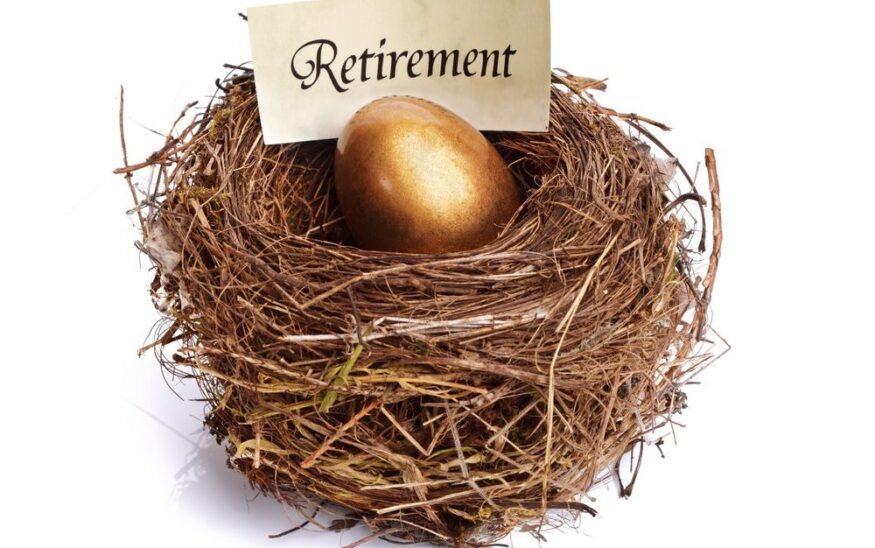So, your retirement’s all set?
How to review your retirement plan in 2020 when global health and economic crises are in full swing
Teresa R. Sanders //September 28, 2020//


So, your retirement’s all set?
How to review your retirement plan in 2020 when global health and economic crises are in full swing
Teresa R. Sanders //September 28, 2020//
You are all set to retire in the next year or two. Your retirement date is set. You believe you are ready.
Here comes 2020 and global health and economic crises are in full swing. Suddenly all the plans swirl around your mind: Should I work a few more years? How long is this crisis going to last? Am I fully prepared to retire? These are challenging questions and you want to be confident that the choices you make are right for you.
It is not uncommon for people to change their retirement date. COVID is only one reason people are reconsidering their retirement date, and it’s not always a delay.
According to a 2019 Wells Fargo retirement survey, 55 percent of workers retired earlier than they planned, primarily due to health conditions or a job loss.
Perhaps you’ve lost your job due to the pandemic and feel that the prospects of getting a new one are not good in the current environment. This suggests that retirement might be a good option, but how can you best evaluate this decision?
Retiring is all about income. A good place to start is to identify your sources of income and whether they are fixed or variable. Fixed income includes social security, pension, and annuity payments. You should try to cover your fixed expenses or at least most of them with fixed income.
Next, inventory expenses that cannot be covered with fixed income sources. Do you have control over whether you incur those expenses – and can you cut those expenses in years when you have less income potential in your portfolio?
How much do you currently spend to maintain your lifestyle? Do you expect to maintain your current lifestyle in retirement?
It can be daunting to estimate all future needs and wants, but you must be honest with yourself about income and expenses. If you still have a significant mortgage, or if you have significant debt, perhaps you need to continue to work, even if it is not in your chosen field.
If you are not 65 and eligible for Medicare, what is your health insurance strategy? Individual health insurance is different from your policy with your employer and it is more expensive. As an alternative, consider finding a part time job with health insurance benefits.
Next, evaluate your portfolio – is it set up for withdrawals? Has your portfolio taken a tumble this year and not come back? Do you need a new strategy to help you limit declines in your portfolio due to market losses? Evaluate what withdrawals now will do to your portfolio over time. Withdrawals from a portfolio that is suffering can cost you in the long run.
How much do you need or want to work during retirement? According to an AARP survey, 29 percent of retirees expect to work more than planned in retirement. It is even higher in the 50-64 age group, 40 percent of whom expect to work more in retirement than expected because of the current downturn.
Retiring early and unexpectedly can introduce new sources of risk to your income throughout your life. Working with your financial advisor to rigorously evaluate what might happen is critical to your success.
But there’s another angle: You are thinking about delaying your retirement because of the economic crisis. You are not alone if you are considering a delay. The Simplywise Retirement Confidence Index states that 26 percent of Americans are considering postponing retirement due to the current economic crisis.
If you are healthy and employed, retiring later is typically a smart move. It allows you to delay social security payments until your full retirement age or later which will increase monthly benefits. Waiting may also increase the payouts from your annuities and pensions. You will also have more time to prepare doing such things as reducing debt or adding to your retirement accounts.
Will retiring later reduce your risk? Perhaps, but it is not certain. For example, you have decided to work five more years because you’re
concerned about the pandemic and its effect on the economy. Do you know for sure that the economy will be better in five years? Of course not, because there is always something. Retirement is a 20- to 30-year journey, so there are going to be periods when the economy is suffering or there is some kind of crisis. Expect it and plan for it.
The time to retire, whether earlier than expected or later, is all about preparation. It is about knowing the facts about your situation and what specific risks you may encounter.
If you feel nervous about retiring right now, then delay, but make sure that you use that time to prepare your financial situation for a successful and happy future.
Teresa R. Sanders, MBA, RICP, CFP, is a partner at Aspen Wealth Management, Inc.

























